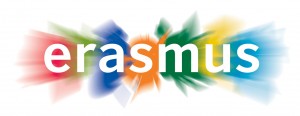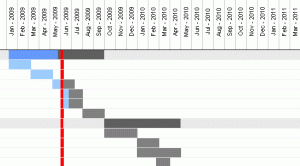 As part of Mental Health Week here at BU Dr Andrew Mayers from DEC has highlighted some of the work he is undertaking with local groups.
As part of Mental Health Week here at BU Dr Andrew Mayers from DEC has highlighted some of the work he is undertaking with local groups.
FirstPoint (Winton)
Run by Bournemouth Borough Council, FirstPoint work with community residents who have a range of mental health problems. Many of these individuals are not cared for by health services, often by choice. Using the ‘recovery model’ for mental health, the trained staff work to re-engage individuals and help them rebuild their lives. In the recovery model, individuals are shown how to regain enough self-confidence to find the coping skills and resources to return to better mental health. I am working with FirstPoint on a number of projects. We are evaluating outcomes in one-year longitudinal study, with BU students collecting and analysing the data. We aim to publish the outcomes in 2012/13. We also are working on arranging a series of work-experience placements for undergraduate and postgraduate students. Over the last months, FirstPoint have been working on a DVD that illustrates the benefits of the recovery model for mental health. The DVD will be used to inform mental health workers; I have made a contribution to that DVD. We will be launching the DVD for FirstPoint at BU in November.
Bournemouth and District Samaritans
The work undertaken by the Samaritans across the UK and Ireland is well known. The central focus of their work is to be a ‘listening ear’ to anyone experiencing despair, loneliness, or feeling suicidal. They are available 24-hours a day, every day of the year, via telephone, text, e-mail, letter, or face-to-face. I work very closely with the Bournemouth  and District branch, acting as their Patron and I organise their publicity. We are working on a number of local projects, not least looking to establish closer ties between BU and the Samaritans. A number of our students volunteer to work at the Branch. The Samaritans have a presence at several BU events. We are currently working with several people at BU to establish a crisis nightline, and training (any) staff who have contact with students who may need emergency help (we have already had some crises with the current BU student intake). We are also looking to work closely with other agencies and charities locally. Some of this may lead to research opportunities, exploring ways in which mental illness, stress and despair can be reduced in our community. I am planning a number of projects focusing on suicide and mental health (including the particular problems faced in rural communities).
and District branch, acting as their Patron and I organise their publicity. We are working on a number of local projects, not least looking to establish closer ties between BU and the Samaritans. A number of our students volunteer to work at the Branch. The Samaritans have a presence at several BU events. We are currently working with several people at BU to establish a crisis nightline, and training (any) staff who have contact with students who may need emergency help (we have already had some crises with the current BU student intake). We are also looking to work closely with other agencies and charities locally. Some of this may lead to research opportunities, exploring ways in which mental illness, stress and despair can be reduced in our community. I am planning a number of projects focusing on suicide and mental health (including the particular problems faced in rural communities).
Barnardo’s (and Bournemouth Borough Council)
I am working with Barnardo’s Family Centres, in conjunction with Bournemouth Borough’s education services, to investigate the impact of maternal mental illness on young children. We are particularly interested in exploring attachment and mother-child interactions. We will be evaluating current programmes and working together on new ones. We have established a working party, with a view to design several research studies, and to explore sources of grant funding.
Dorset HealthCare University NHS Foundation Trust
 I am supervising a PhD project (Research student – Lauren Kita), working with the perinatal team within Dorset HealthCare University NHS Foundation Trust. We are exploring the extent that poor sleep may pose a risk factor for postnatal depression. We will be examining sleep objectively, using state-of-the-art EEG equipment, and subjectively, using sleep diaries. Women with a history of depression will compared to women without such a history, during pregnancy and at weeks 4 and 12 after the baby is born. The mother’s mood and other mental indicators will also be measured.
I am supervising a PhD project (Research student – Lauren Kita), working with the perinatal team within Dorset HealthCare University NHS Foundation Trust. We are exploring the extent that poor sleep may pose a risk factor for postnatal depression. We will be examining sleep objectively, using state-of-the-art EEG equipment, and subjectively, using sleep diaries. Women with a history of depression will compared to women without such a history, during pregnancy and at weeks 4 and 12 after the baby is born. The mother’s mood and other mental indicators will also be measured.
International Cultic Studies Association /New School of Psychotherapy and Counselling
I am working with a Chartered Counselling Psychologist to explore mental health of individuals who were born into exclusive cults (i.e. they did not decide to join that cult). Through this contact, and the International Cultic Studies Association (ISCA) we have access to several hundred former members. We will be using a series of questionnaires that measure key factors such as current mental illness, trauma, self-efficacy, coping skills, and general life function. We will present the findings at the Annual ISCA Conference in Montreal next summer. Several papers will be published soon afterwards.
If you would like to find out more about this work please contact Andrew Mayers.


 Interested in spending a year conducting research at an overseas university? The following funding schemes may be of interest:
Interested in spending a year conducting research at an overseas university? The following funding schemes may be of interest:
 As part of Mental Health Week here at BU
As part of Mental Health Week here at BU  The
The 
 As part of Mental Health Week here at BU Dr
As part of Mental Health Week here at BU Dr  and District branch, acting as their Patron and I organise their publicity. We are working on a number of local projects, not least looking to establish closer ties between BU and the Samaritans. A number of our students volunteer to work at the Branch. The Samaritans have a presence at several BU events. We are currently working with several people at BU to establish a crisis nightline, and training (any) staff who have contact with students who may need emergency help (we have already had some crises with the current BU student intake). We are also looking to work closely with other agencies and charities locally. Some of this may lead to research opportunities, exploring ways in which mental illness, stress and despair can be reduced in our community. I am planning a number of projects focusing on suicide and mental health (including the particular problems faced in rural communities).
and District branch, acting as their Patron and I organise their publicity. We are working on a number of local projects, not least looking to establish closer ties between BU and the Samaritans. A number of our students volunteer to work at the Branch. The Samaritans have a presence at several BU events. We are currently working with several people at BU to establish a crisis nightline, and training (any) staff who have contact with students who may need emergency help (we have already had some crises with the current BU student intake). We are also looking to work closely with other agencies and charities locally. Some of this may lead to research opportunities, exploring ways in which mental illness, stress and despair can be reduced in our community. I am planning a number of projects focusing on suicide and mental health (including the particular problems faced in rural communities). I am supervising a PhD project (Research student – Lauren Kita), working with the perinatal team within Dorset HealthCare University NHS Foundation Trust. We are exploring the extent that poor sleep may pose a risk factor for postnatal depression. We will be examining sleep objectively, using state-of-the-art EEG equipment, and subjectively, using sleep diaries. Women with a history of depression will compared to women without such a history, during pregnancy and at weeks 4 and 12 after the baby is born. The mother’s mood and other mental indicators will also be measured.
I am supervising a PhD project (Research student – Lauren Kita), working with the perinatal team within Dorset HealthCare University NHS Foundation Trust. We are exploring the extent that poor sleep may pose a risk factor for postnatal depression. We will be examining sleep objectively, using state-of-the-art EEG equipment, and subjectively, using sleep diaries. Women with a history of depression will compared to women without such a history, during pregnancy and at weeks 4 and 12 after the baby is born. The mother’s mood and other mental indicators will also be measured. BU’s International Centre for Tourism and Hospitality Research (ICTHR) is delighted to be hosting the second global conference to explore real-world issues.
BU’s International Centre for Tourism and Hospitality Research (ICTHR) is delighted to be hosting the second global conference to explore real-world issues. The
The  The first closing date for the BU Research Development Fund – Small Grants Scheme (RDF-SGS) is 31 October 2011.
The first closing date for the BU Research Development Fund – Small Grants Scheme (RDF-SGS) is 31 October 2011.
 The Do’s of writing a good research bid:
The Do’s of writing a good research bid:  I am sure that you would wish to join with me in congratulating both
I am sure that you would wish to join with me in congratulating both 












 Beyond Academia: Exploring Career Options for Early Career Researchers – Online Workshop
Beyond Academia: Exploring Career Options for Early Career Researchers – Online Workshop UKCGE Recognised Research Supervision Programme: Deadline Approaching
UKCGE Recognised Research Supervision Programme: Deadline Approaching SPROUT: From Sustainable Research to Sustainable Research Lives
SPROUT: From Sustainable Research to Sustainable Research Lives BRIAN upgrade and new look
BRIAN upgrade and new look Seeing the fruits of your labour in Bangladesh
Seeing the fruits of your labour in Bangladesh ECR Funding Open Call: Research Culture & Community Grant – Apply now
ECR Funding Open Call: Research Culture & Community Grant – Apply now ECR Funding Open Call: Research Culture & Community Grant – Application Deadline Friday 12 December
ECR Funding Open Call: Research Culture & Community Grant – Application Deadline Friday 12 December MSCA Postdoctoral Fellowships 2025 Call
MSCA Postdoctoral Fellowships 2025 Call ERC Advanced Grant 2025 Webinar
ERC Advanced Grant 2025 Webinar Update on UKRO services
Update on UKRO services European research project exploring use of ‘virtual twins’ to better manage metabolic associated fatty liver disease
European research project exploring use of ‘virtual twins’ to better manage metabolic associated fatty liver disease